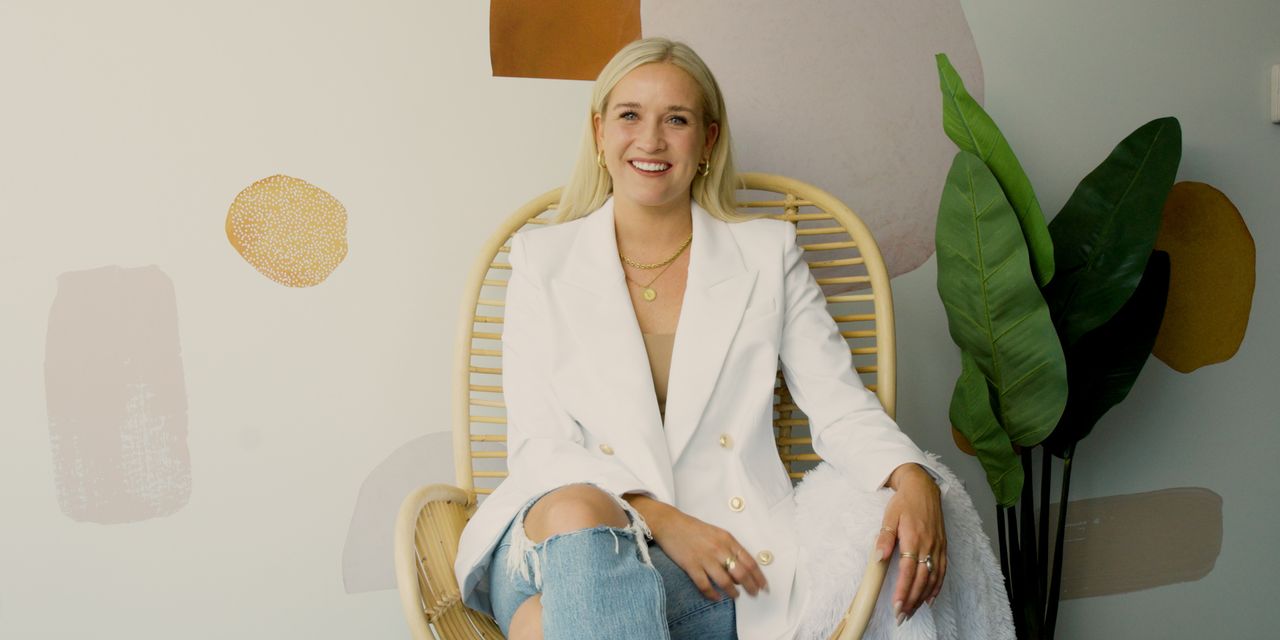Chloe Elise grew up in a small town in Iowa and worked through her school years, usually multiple jobs at once.
In high school, she assisted with swim lessons, made root beer floats at a fairground, mowed lawns and babysat. In college, she was a tutor and personal assistant, worked in a mailroom and babysat. She also donated plasma for pay and took online surveys that paid pennies.
But it wasn’t paying off.
“At the end of the day, no matter how much I worked, no matter how many more side hustles I brought in, I never felt like it really made a difference for me financially,” said Chloe, 27, who goes by her first and middle name professionally.
She got a debit card during college, and recalled feeling shame when the card was occasionally declined at places like the grocery store. She said she paid for about two-thirds of her college experience through her earnings and student loans, and her parents chipped in the rest.
For Chloe, money was part of a vicious cycle: She would work, earn it, spend it, want to go out with friends, and have to skip going out either because she felt broke or had to work.
“Finally, I just had this meltdown where I’m like, I have to figure this out,” she said. “Something has to change.”
Chloe started by figuring out her debt balance. She owed about $10,000 for her Ford Focus, but had never paid much attention to her student loans. She said that when she logged in and saw she owed $26,000, she was shocked. At the time, she was working in the college mailroom making $7 an hour.
She pulled out her phone, divided 26,000 by 7 and saw how many hours it would take to pay it off. And while some of the loans were not accruing interest because she was still in college, others already were.
“To me, that could have been $10 million,” she told MarketWatch. “That’s how it felt, like, I will never pay this off. How will I even try paying this off?”
She was majoring in economics and learning about financial systems, but not personal finance. For that, she spent time studying financial textbooks in the college library and listening to podcasts. When she saw a term she didn’t know, like FICO score, she looked it up. “It was very DIY and nitty gritty to start,” she recalled.
She got a job as a project coordinator in healthcare IT after graduation, negotiating for her salary and a sign-on bonus. She rented a “one-bedroom, super small apartment” in Iowa, and keeping her expenses low and her side hustles humming helped her steadily pay down her $36,000 total debt.
A promotion led her to move from Iowa to Kansas City, Mo., and she said by that time, she had paid off her debt and built up an emergency fund.
She had always wanted to be an entrepreneur, and started Deeper Than Money, a financial literacy platform that felt different from the resources she had learned from, at the end of summer 2018. By the next summer, it had grown enough that she felt she could quit her full-time job. The company offers coaching, courses and other resources. Along the way, she got certificates in financial and life coaching.
Her mom, a college professor, had begun to struggle with health issues, and to make her life easier, Chloe hired her to work for Deeper Than Money, one of her proudest moments. Chloe’s mom passed away in February 2022.
As her net worth climbed, Chloe diversified her investments with real estate. In 2021, she bought a lake house in Lake of the Ozarks, Mo., a popular vacation spot, from a family friend. In January 2023, she closed on a condo in Nashville that she’s using as a short-term rental. And in April, she bought a 3-bedroom “dream house” for herself in Kansas City, where she lives with her mini goldendoodles, Rosie and Millie.
Deeper Than Money made a net revenue of more than $1 million in 2022, according to records the company provided.
For Chloe, money is a tool, not tied to shame or stress, that helps her feel free and accomplish her dreams.
This summer, she is set to fulfill another dream: publishing a book. “Deeper Than Money: Ditch Money Shame, Build Wealth, and Feel Confident AF” is due for release in August from TarcherPerigee, an imprint of Penguin Random House.
“The goal shouldn’t be to have as much money as possible,” she told MarketWatch. “The goal should be to have the amount of money to create the life that you want.”
Julia Barrett-Mitchell contributed to this story.
Read the full article here




